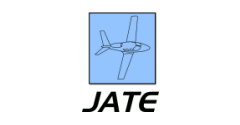Abstract
Diversity within the science, technology, engineering, and mathematics (STEM) fields has historically lagged behind that which is found in other vocational paths. Aviation has also suffered poor diversity with virtually no participation among professional pilots. With both the literature specifying the benefits of diversity in the aviation workplace and potential shortages of pilots looming, it is in the interest of aerospace stakeholders to have access to the most comprehensively diverse employee pool possible. The purpose of this research was to evaluate the trends in participation by minorities who completed professional pilot education programs in the United States. Data concerning the number of students who completed degrees at the associate’s, bachelor’s, and master’s levels were collected via the Integrated Postsecondary Education Data System (IPEDS). Participation rates were compared to those found within the aviation industry. In general, the participation rates by non-White minorities in collegiate aviation (27.3%) exceeds that reported in the professional pilot vocation (18.4%). Detailed trends over the past 10 years were evaluated. Between 2004 and 2014, minority (including women) participation increased from 17.1% to 22.2%, which was deemed to be statistically significant (z = 3.7, p < 0.001). The greatest gains were exhibited among Hispanics (p < 0.001), specifically Hispanic men (p < 0.001), with marginal gains by Asians (p = 0.06). Decreases were noted in Native American participation (p = 0.03) as well as among women, albeit not significantly (p = 0.31). When extending the analysis back another seven years, minority (including women) participation showed significant change from 1997 (16.5%) to 2014 (22.2%), z = 3.7, p < 0.001. Minority participation in professional pilot education has shown steady gains over the past two decades; however, it appears that this trend is leveling, especially among women. Further study is recommended with particular interest in promotion and recruitment of a diverse aviation student population.
Recommended Citation
Ison, David C.; Herron, Rene; and Weiland, Linda
(2016)
"Two Decades of Progress for Minorities in Aviation,"
Journal of Aviation Technology and Engineering:
Vol. 6:
Iss.
1, Article 4.
Available at: https://doi.org/10.7771/2159-6670.1141
Included in
Other Social and Behavioral Sciences Commons, Social Statistics Commons, Women's Studies Commons


